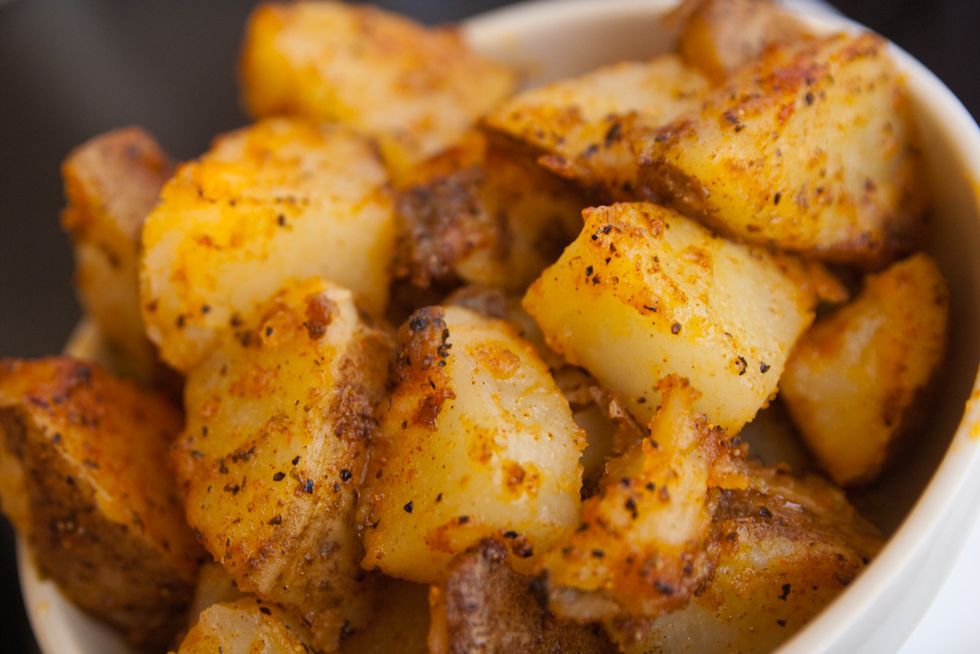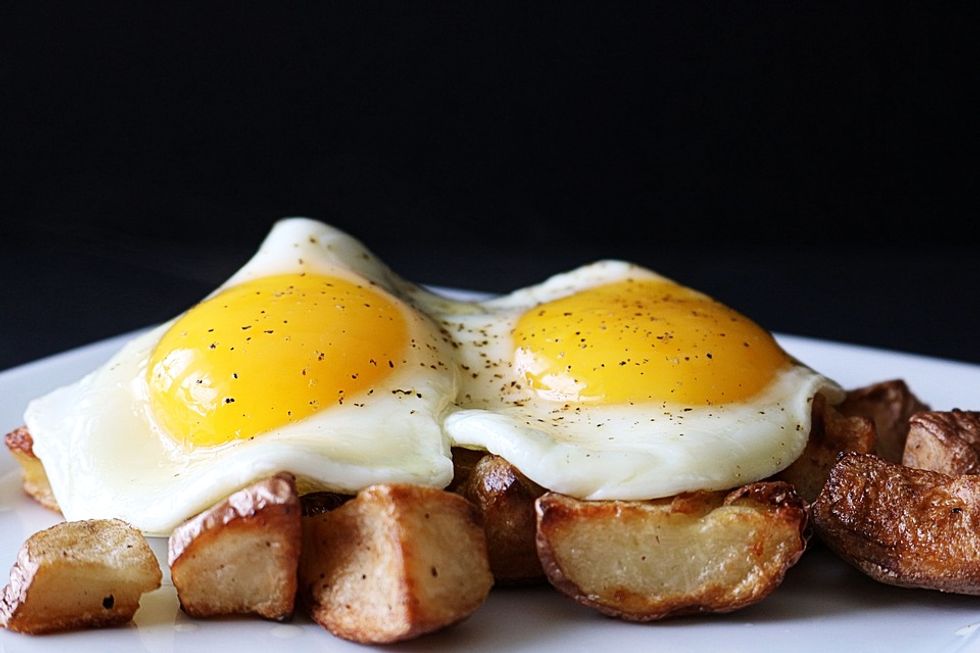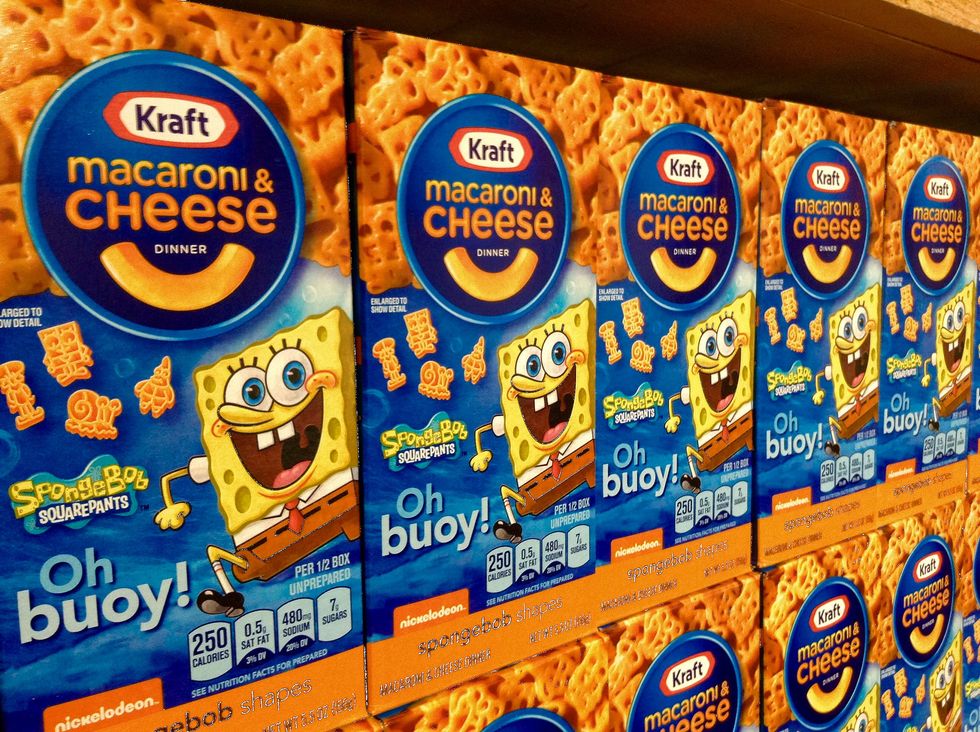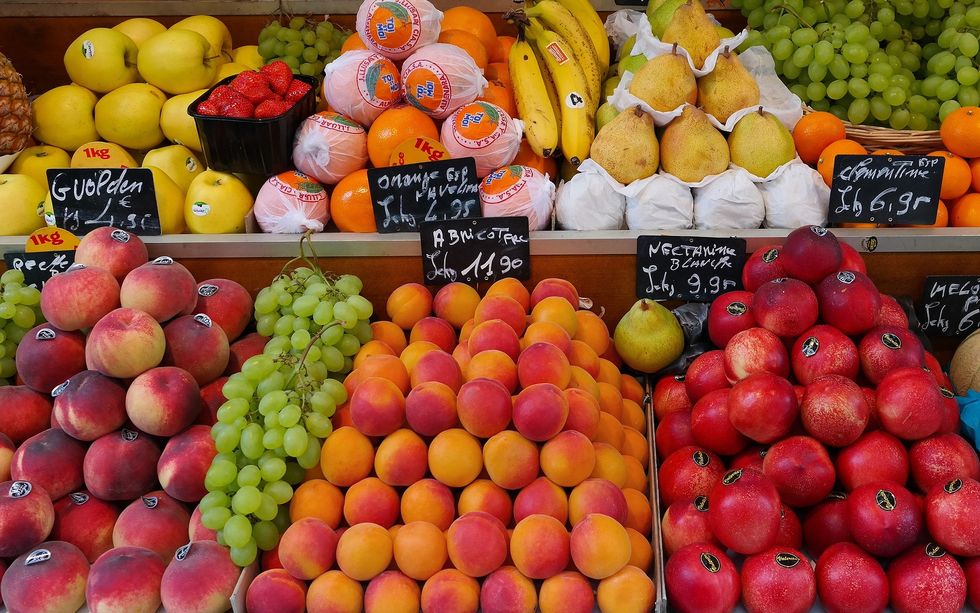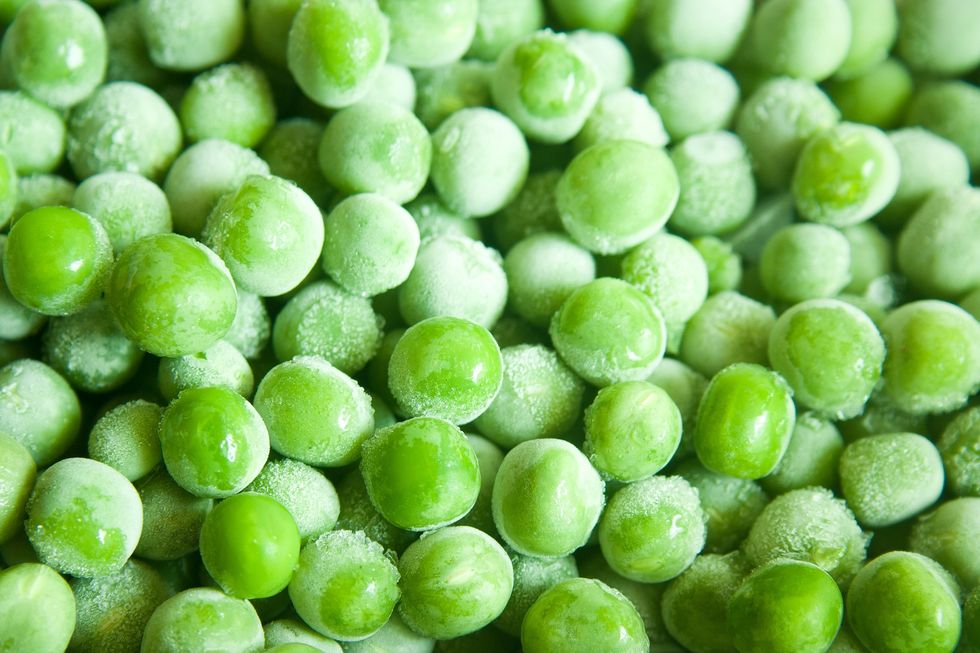Healthy eating on the cheap is something I consider pretty much every day of my existence, having lived through both the time my dad discovered Golden Corral was probably not the best place to go every Sunday and interning at a health-based non-profit. However, as a college student, putting that into practice can be challenging.
While most of us know that eating at home can save you tons of money (and if you don’t, reducing the amount you eat out may be the answer to your problems), it’s harder to know what to eat at home. What will give you the most bang for your limited bucks? There are multiple ways to go about this, but here are my top five tips on how to substitute out things you already buy to work towards spending less and eating healthier more.
1. Potatoes and rice instead of bread
Keep your friends close but keep your carbs closer. Carbs get a bad rep for being just filler in your meal, but they can contain a lot of vitamins and minerals if you keep them close to the form they come in when they’re pulled from the ground. Sweet potatoes are probably the most nutrient-dense when it comes to this group of food.
Most breads are fortified today to contain all of the vitamins the grains lose in the process but tend to be less versatile than potatoes or rice. Think about it. How many different ways can you cook potatoes? Also, rice literally multiplies itself in size when it’s put in water, which is a magic trick in and of itself. If you put bread in water, you’re just gonna have soggy bread. Potatoes and rice also have a longer shelf-life than a loaf of Mrs. Baird’s.
2. Eggs or beans instead of meat
If you’ve ever had the “pleasure” of shopping for yourself, you know that meat - whether poultry, pork, or prime rib - is expensive. A few low-cost cuts of steak will cost you just about as much as a 12-count carton of the expensive cage-and-hormone-free variety eggs and will get you a small mountain of beans.
Assuming you have about two eggs a meal and you’re more likely to finish an entire steak in one sitting, that’s about three times as many meals. Eggs and beans also tend to have a longer shelf-life than meat and are also great sources of protein, which means you can stock up when your check comes and you don’t have to freak out when you run out of groceries a week before your next payday.
3. Value sizes instead of single servings
As a college student perpetually on the go, this one is hard to write. I know, it’s rough. I love the ease and convenience of single-serving anything from mac and cheese to granola bars. I don’t love it enough to shell out way more cash for them though. When it comes to counting every penny, the value box will almost always win in terms of weight, size, number of units, whatever. Check out your grocery store if you don’t believe me and look for little tags that say 'price per unit' or 'price per ounce.' You’ll be shocked.
4. Fruit or veggies instead of prepackaged snacks
This is another one that’s hard to write. Consider it this way though: which one is better to tie you over for a couple hours before your next meal – a banana or a small bag of pretzels? While the pretzels may be more filling, some sources say that snacking on a kind-of-carb like bread will just make you hungrier long-term. That’s why Olive Garden gives out free breadsticks like Oprah gives out free, well, everything. Fruit and veggies will also give you more nutrients that can serve a dual purpose like potassium relieves muscle tension or gives you a sugar-kick without the crash later. Just watch out for some of the pricier options like grapes and avocados when you hit the produce aisle.
5. Frozen and canned instead of fresh produce
If you’re still not won over by number four because you often find that your produce will go bad before you get the chance to actually eat it, fear not. Frozen and canned fruit and veggies can be just as healthy while being longer-lasting than their fresh counterparts. Lots of stores will also carry value size bags of these as well as store brands to make it as cheap as possible to fit in the foods your parents probably always nagged you about eating as a kid. One note is just to be wary of added sugars or salt, and be sure to rinse them if they come in a syrup.


